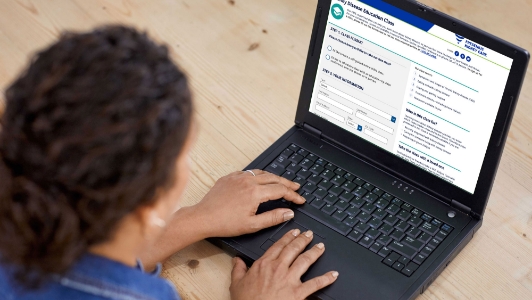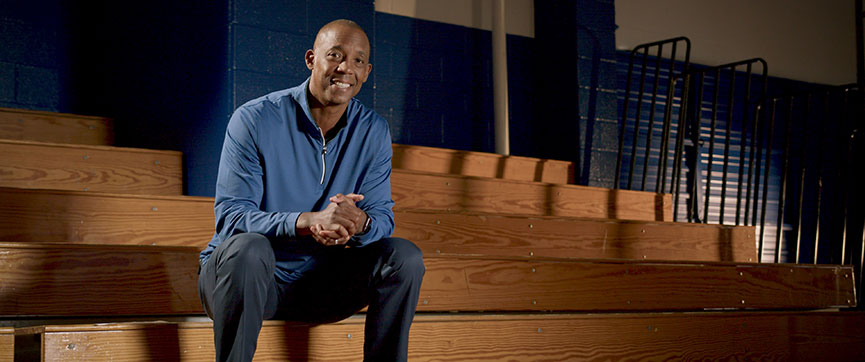Causes of Chronic Kidney Disease
Diabetes
Diabetes is the number one cause of kidney failure in the US. 1 in 3 adults with diabetes may have chronic kidney disease.*
Why diabetes can cause kidney disease
Diabetes can impact blood circulation within the glomerulus, a part of the kidney’s blood-filtering system. People with diabetes may also have the following risk factors:
- High blood pressure
- Poor glucose control
- A family history of kidney disease
How kidney disease progresses with diabetes
Type 1 diabetes
- Changes in kidney function may begin within 2–5 years after diagnosis of diabetes.
- Within 10–30 years of being diagnosed with type 1 diabetes, 30%–40% of people develop late stage kidney disease.
Type 2 diabetes
- Kidney disease in type 2 diabetes follows a timeline that is similar to type 1 diabetes, but type 2 diabetes usually occurs later in life.
What you can do to prevent kidney disease with diabetes
Too much glucose can impact your kidney’s ability to function over time. Make sure you:
- Eat healthy.
- Take medication to control glucose levels.


High blood pressure
High blood pressure (hypertension) is the second leading cause of kidney failure in the US. 1 in 5 adults with high blood pressure may have chronic kidney disease*.
Why high blood pressure can cause kidney disease
High blood pressure weakens blood vessels in the entire body—including the kidneys—which results in a loss of their ability to function.
How kidney disease progresses with high blood pressure
What you can do to prevent kidney disease with high blood pressure
It’s recommended that you keep your blood pressure below 140/90. Here are ways you can keep your blood pressure under control:
- Eat healthy
- Exercise
- Reduce stress
- Don’t smoke
- Talk to your doctor about medication
If you're living with one of the conditions that can cause CKD, talk to your doctor about getting tested. Early diagnosis is key to preserving kidney function.
e-newsletter
Get the latest news in kidney care and delicious kidney-friendly recipes, plus inspiring stories from people living with kidney disease.
Glomerular disease
The third leading cause of kidney failure, glomerular disease, is responsible for about 7% of instances of CKD.
Why glomerular disease can cause kidney disease
How kidney disease progresses with glomerular disease
What you can do to prevent kidney disease with glomerular disease
Talk to your doctor to see if any of the following medications could help:
- ACE inhibitors or ARBs lower blood pressure and stop protein loss in the urine.
- Diuretics (water pills) treat swelling in your ankles and feet.
- Corticosteriods can help manage your immune system.
Polycystic kidney disease
Polycystic kidney disease (PKD) is passed down through families, and causes about 1.6% of instances of CKD.
Why pkd can cause kidney disease
How kidney disease progresses with pkd
What you can do to prevent kidney disease with pkd
Lifestyle changes can help prevent PKD—and CKD—from progressing. Here are some things you can do:
- Drink plain water.
- Avoid caffeine.
- Get 7–8 hours of sleep per night.
- Maintain a healthy weight.
- Reduce stress.
- Keep blood pressure levels under control.
- Treat bladder or kidney infections as soon as possible.
Keep in mind that not everyone with PKD will develop kidney failure, but certain people are at an increased risk:
- Men
- People with high blood pressure
- People with protein or blood in their urine
- Women with high blood pressure who have had more than 3 pregnancies
What you can do to prevent kidney disease
Early kidney disease rarely has symptoms. If you are at risk for kidney disease, ask your doctor about screening for CKD and keep track of changes in your health.
What you can do if you have late stage kidney disease
If your doctor has already diagnosed you with late stage kidney disease, it’s time to make a treatment plan. Luckily, you have options with late stage kidney disease and it’s possible to choose one that fits your lifestyle. Let your doctor know what’s important to you, and together you can decide which treatment is best for you.
